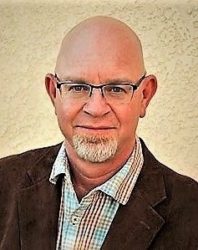 By Scott Brassart
By Scott Brassart
As addicts, we enmesh ourselves in toxic behavior patterns, one of which is emotional and psychological escape. When faced with stress and life challenges, we choose to escape – to numb our feelings of fear and discomfort with addictive substances and behaviors. Rather than facing the obstacles and disappointments that inevitably crop up in life, we avoid them.
We do this because we learned, usually early in life, that it is easier and safer (less chance of failing and feeling ashamed) if we just look the other way and pretend that our problems aren’t there. So now, as adults, when we are confronted with an obstacle, we avoid it and look for an easier, softer way to get by. And for many of us, that easier, softer way is a toxic pattern of escape and dissociation via addictive substances and behaviors.
In recovery, of course, we suddenly find that we must face life’s challenges instead of dodging them. And life does continually present us with challenges – flat tires, job strife, pandemics, etc. Unfortunately, because we’ve spent most of our lives in the toxic pattern of avoiding rather than facing life’s obstacles, we are often stuck when we run into one. We find that we don’t know how to overcome even the simplest of challenges because we’ve never done it before. We lack what Spartan Race founder Joe De Sena refers to as obstacle immunity.
Obstacle immunity develops when we consciously step away from the toxic dance of escape and avoidance. As we do this, we slowly but steadily learn how to face and overcome the challenges and disappointments of life. Over time, as we engage in this new, healthier pattern of dealing with life on life’s terms, we develop obstacle immunity. Eventually, even the biggest of obstacles will barely slow us down. Often, we find that we actually enjoy facing and overcoming life’s challenges. We may even think of something we’ve always wanted to do but were afraid of failing at, and then set ourselves the challenge of doing it.
In his book, The Psychology of Optimal Experience, Dr. Mihaly Csikszentmihalyi writes, “The best moments in our lives are not the passive, receptive, relaxing times…. The best moments usually occur when [our] body or mind is stretched to its limits in a voluntary effort to accomplish something difficult and worthwhile.” This statement applies very specifically to addiction recovery. When we challenge ourselves to break away from our toxic pattern of escaping through substance abuse and behavioral compulsivity, we stretch our bodies and minds and even our souls in ways we never thought possible, and we tend to find this process immensely rewarding.
Happily, any recovering addict can develop obstacle immunity. The first step is to challenge ourselves. For many of us, especially those new to the process of recovery and healing, a good challenge might be to stay sober for the next 24 hours or to attend 90 recovery-focused meetings in 90 days. As sobriety is better established and recovery progresses, challenges might include going back to school or repairing a damaged relationship or even running a marathon. The trick is to start with a challenge we can handle today (like staying sober at least until we get to our next 12-step meeting), and then trying to do a little bit more tomorrow and every day after. With this approach, before we know it, we can break the toxic pattern of escape and establish a new pattern of living life to its fullest.
* * * * * * * * * *
If you or someone you care about is struggling with sex, porn, or substance/sex addiction, help is available. Seeking Integrity offers inpatient treatment for sex, porn, and substance/sex addicts, as well as low-cost online workgroups. At the same time, SexandRelationshipHealing.com offers a variety of free webinars and drop-in discussion groups, podcasts, and more.
